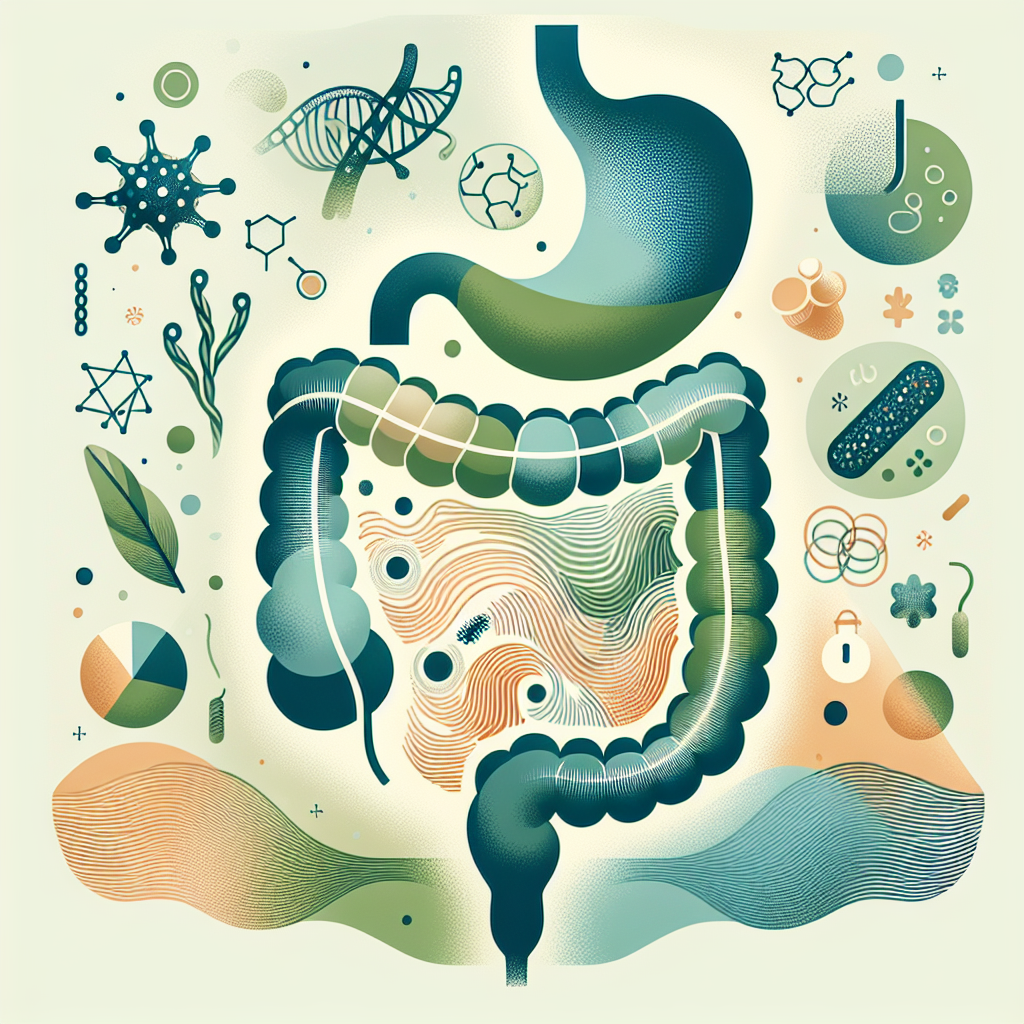
How do I get rid of my bowel problems?
Bowel problems affect millions of people worldwide, manifesting as bloating, constipation, diarrhea, gas, and abdominal pain. Understanding why these symptoms occur is crucial to deep and lasting relief. This blog post explores the connection between bowel issues and the gut microbiome — a complex ecosystem of microorganisms living in your digestive tract. We'll delve into how microbial imbalances contribute to digestive distress and how gut microbiome testing can help identify root causes. By taking a structured, personalized approach based on your microbiome profile, you can take meaningful steps toward resolving chronic bowel problems, improving gut health, and enhancing overall well-being.
Understanding Bowel Problems and the Role of the Gut Microbiome
Bowel problems are more than a minor inconvenience; they can significantly impact your quality of life. From bloating after meals to persistent diarrhea or constipation, these symptoms are often indicative of deeper digestive issues. Grasping the underlying causes is key to managing and eventually resolving them.
Common bowel problems fall into a few main categories: irregular bowel movements (constipation or diarrhea), bloating and gas, abdominal discomfort, and pain. While these can be caused by dietary factors, stress, medications, or infections, one of the most overlooked contributors is the gut microbiome.
The gut microbiome is a diverse community of trillions of bacteria, fungi, viruses, and other microorganisms that inhabit your gastrointestinal (GI) tract. These microbes are not just passive passengers — they actively help digest food, produce essential nutrients, support the immune system, and maintain the integrity of your gut lining.
When this complex ecosystem is in balance, it facilitates smooth digestion and elimination. However, when imbalanced — a condition known as dysbiosis — it can lead to or exacerbate bowel problems. Dysbiosis can manifest as an overgrowth of harmful bacteria, a deficiency in beneficial bacteria, or a lack of microbial diversity. These disruptions can impair digestion, hinder nutrient absorption, and trigger inflammation and immune responses.
Therefore, it's essential to consider not just your diet or hygiene but the broader microbial ecosystem in your gut. Recognizing that many bowel problems are symptoms of a disrupted microbiome opens the door for targeted solutions. Instead of merely masking symptoms with laxatives or antidiarrheals, gut microbiome testing helps pinpoint the microbial imbalances at the core of the issue — a more holistic and sustainable route to healing.
Understanding and addressing your microbiota is not something to do blindly, however. This is where innovative tools like gut microbiome tests from platforms like InnerBuddies prove invaluable. These tests provide a comprehensive overview of your gut health and offer data-driven guidance to resolve persistent bowel problems.
In the following sections, we’ll explore how microbiome testing works, how it helps personalize treatments, and how you can use this knowledge to improve your digestive health and overall well-being effectively.
Exploring Digestive Health Issues: How Microbiome Testing Can Help Diagnose the Root Causes
If you're struggling with persistent bowel problems, finding a lasting solution often means looking beyond superficial symptoms. Microbiome testing gives healthcare practitioners and individuals a powerful tool for uncovering root causes of digestive distress.
Microbiome testing typically involves analyzing a stool sample using advanced sequencing technologies. Two main methods dominate this field: 16S rRNA sequencing and whole genome shotgun sequencing. These methods allow scientists to identify the types, abundance, and function of microorganisms in your gut with impressive accuracy.
Here’s what a good microbiome test can tell you:
- Which beneficial and harmful bacteria are present and in what quantities
- The overall diversity of your gut microbiome
- Markers related to inflammation, digestion, and colon health
- Presence of pathogens or overgrowth of particular microbes linked to specific bowel conditions
For example, individuals with chronic diarrhea may harbor an overgrowth of bacteria that produce excessive short-chain fatty acids, which can irritate the gut lining. Conversely, someone with chronic constipation may have low levels of butyrate-producing bacteria, which support smooth muscle contraction and regular bowel movements.
Let’s look at a practical case study. Jane, a 29-year-old woman, had been suffering from alternating constipation and diarrhea. Rather than continue with elimination diets and harsh medications, she opted for a microbiome test through InnerBuddies. Her results revealed low microbial diversity and a marked overrepresentation of Enterobacteriaceae, a family of bacteria linked with gut inflammation. With this knowledge, her treatment included targeted prebiotics and probiotics, along with lifestyle adjustments. After four weeks, she reported a significant improvement in regularity and decrease in abdominal pain.
Microbiome testing is especially powerful because it highlights patterns invisible to traditional diagnostic tools like colonoscopies or basic stool analyses. Standard tests might rule out major structural issues but could miss subtle microbial imbalances or dysbiosis. This deeper level of insight enables customizing treatments to an individual's unique microbiome profile.
Moreover, patients taking antibiotics, those recovering from gastrointestinal infections, individuals with autoimmune conditions, or people who have tried multiple diets without success stand to gain considerably from microbiome testing. By identifying even slight dysregulations at the microbial level, the body can be supported from the inside out.
Reliable providers like InnerBuddies not only offer precise microbiome data but also actionable coaching and guidance based on your results. This empowers you to make smart, supportive changes to your diet, lifestyle, and supplementation grounded in scientific evidence — leading to true digestive healing rather than temporary symptom suppression.
Bowel Movement Relief: Improving Regularity and Consistency with Microbiome Insights
Irregular bowel movements, particularly chronic constipation or loose stools, are two of the most common digestive complaints. Yet many people struggle to find lasting relief. By shifting focus to the gut microbiome, new doors open for improving bathroom habits through tailored, data-based strategies.
Normal bowel movement frequency varies from person to person but generally ranges from three times a day to three times a week. Anything outside these bounds — either fewer or more — may signal an imbalance. The causes of irregularity often include poor diet, dehydration, inactivity, medications, infections, and stress. But critically, an altered microbiome is often at the heart of the problem.
For instance, beneficial bacteria like Bifidobacterium and Faecalibacterium prausnitzii play a pivotal role in supporting bowel motility and maintaining intestinal lining integrity. When these microbes decline, bowel movements may slow significantly. On the other side, excess levels of gas-producing bacteria can lead to diarrhea or stool urgency due to bloating and pressure.
Microbiome testing can fine-tune treatment by locating the microbial culprits. Once identified, the plan to restore microbial balance becomes much clearer. For instance:
- Introducing specific prebiotic fibers (like inulin or partially hydrolyzed guar gum) to promote helpful bacteria growth
- Adding targeted probiotics such as Bifidobacterium lactis for constipation or Saccharomyces boulardii for diarrhea
- Reducing intake of fermentable carbs (FODMAPs) in case of bacterial overgrowth
Take Daniel, a 45-year-old man experiencing bloating and infrequent bowel movements. After microbiome testing revealed low levels of Akkermansia muciniphila and overgrowth of Clostridium species, he was guided to incorporate polyphenol-rich foods like pomegranate and green tea. With consistent dietary shifts and the addition of probiotic supplements, his stool regularity and comfort improved within weeks.
Tracking progress also becomes data-driven. Repeat microbiome tests every three to six months offer a clear picture of what’s working. The cycle of symptom relief is then constantly tuned based on real-time metrics rather than guesswork.
If you're struggling with bowel movement inconsistency, consider investing in a customized microbiome test from InnerBuddies to uncover which microbial players might be getting in the way of regularity. Guided supplements, food pairings, and behavioral changes can be developed precisely to nurture healthier digestion from the ground up.
Intestinal Discomfort Remedies: Alleviating Pain, Bloating, and Gas Through Microbiome Optimization
Bloating, abdominal pain, and excessive gas are hallmark signs of digestive dysfunction. Sometimes, these symptoms arise intermittently, while other times they persist and disrupt daily life. Given their complexity, a one-size-fits-all approach rarely works. Microbiome insights make it possible to provide personalized relief rooted in science.
Abdominal discomfort is often tied to what's known as dysbiosis — an unhealthy shift in the gut's microbial population. Many offenders come into play:
- Gas-producing bacteria that metabolize undigested carbohydrates
- Loss of lactate-utilizing bacteria, increasing stomach acid sensitivity
- Low levels of butyrate-producing bacteria that protect mucosal barriers
Small intestinal bacterial overgrowth (SIBO) is another major cause. Though technically outside the large intestine that houses most gut bacteria, SIBO involves misplaced microbial buildup in the small intestine, leading to bloating and discomfort worsened by certain foods.
Microbiome testing creates a roadmap to restore balance. Once you identify which microbes are out of sync, you can tailor treatment specifically for your ecosystem. Effective measures often include:
- Prebiotic-rich foods like leeks, onion, and Jerusalem artichoke for beneficial growth
- Probiotics such as Lactobacillus plantarum or Lactobacillus acidophilus to reduce inflammation and gas
- Digestive enzymes or bitters to support stomach acid and bile flow
- Elimination of sugary or fermentable foods if overgrowth is flagged
Consider Maria’s story. Chronic bloating after every meal led her to avoid dining out and feel anxious about eating. Microbiome testing revealed overgrowth of methane-producing archaea and low butyrate levels. A structured plan including low-FODMAP foods, targeted probiotics, and fermented vegetable intake produced tangible relief in six weeks. She now eats without fear of discomfort and maintains regular check-ins via retesting.
For many individuals, the solution isn’t only dietary but lifestyle-oriented too. Managing stress through breathwork, improving sleep quality, and incorporating probiotic foods like kefir or kimchi become vital tools.
Utilizing microbiome guidance through platforms like InnerBuddies' microbiome tests ensures your plan is biologically appropriate and adaptive over time. Natural functions like comfort after meals become restored through targeted optimization rather than random elimination.
Chronic Constipation Solutions: Targeting Microbial Factors for Long-term Relief
Living with chronic constipation — defined as infrequent, difficult, or incomplete bowel movements that persist over weeks or months — can be incredibly frustrating and debilitative. Unfortunately, standard remedies like fiber supplements, stool softeners, and laxatives provide only fleeting relief without addressing what's at the root: your gut microbiota.
The gut microbiome plays a key role in regulating bowel motility. When the microbial balance is off, the signals governing peristalsis — the muscle contractions that move stool through the colon — can be weakened or distorted.
For instance, a thriving colony of methanogens (archaea that produce methane gas) slows down intestinal transit time. Similarly, a depletion of commensal bacteria like Roseburia and F. prausnitzii can lead to drier stools and more inflammation. These insights are hard to capture without proper testing.
Gut microbiome testing reveals the specific patterns of imbalance contributing to slow stool passage. Once identified, various tools can support restoration:
- Butyrate supplements to support colonocyte health and motility
- Probiotic blends such as Bifidobacterium infantis and Lactobacillus plantarum
- Removal of methane-producing organisms through antimicrobial herbs or medications (under medical guidance)
- Increased intake of osmotic fibers like magnesium citrate and plant-based fiber blends personalized to your test results
For those with deeply chronic cases, advanced solutions like fecal microbiota transplants (FMT) — under medical supervision — are gaining attention for their potential to reintroduce a full spectrum of healthy microbes into the digestive tract.
Equally important are lifestyle factors. Regular movement, consistent meal timing, hydration, stress management — all of these either promote or discourage microbial balance and regular bowel movements. Putting it together as a system helps maintain health long term.
Chronic constipation isn't something you have to live with indefinitely. With guidance from microbiome platforms like InnerBuddies, you can develop a sustainable plan to resolve this condition from the inside out using data, not desperation.
[Continues with the remaining sections...]
